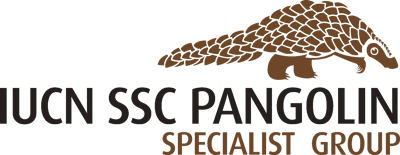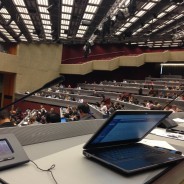At the 16th meeting of the Conference of the Parties to CITES (CoP16), held in Bangkok in March 2013, the illicit trade in pangolins was raised as an issue of concern by the CITES Secretariat. Following an intervention by a number of CITES Parties’, as well as the IUCN SSC Pangolin Specialist Group, two Decisions (16.41 and 16.42) were adopted, and which requested pangolin range states in Asia to compile and submit information on the trade and conservation of pangolins to the Secretariat for consideration by the CITES Standing Committee. In response to this request, a number of range states as well as other Parties submitted information, and included China, Vietnam, Thailand, India, Pakistan and the European Union, and the information was considered last week by the CITES Standing Committee at its 65th meeting (SC65) held in Geneva, and the outcome has been greater traction for pangolins in the Convention.
At SC65 pangolins came up on the agenda under the item on enforcement matters, and a suite of interventions followed the introduction of the document and the issue by the Secretariat. Interventions were made by China, Vietnam, Indonesia, the US, Canada, and India, as well as the IUCN SSC Pangolin Specialist Group, and a number of NGOs. The Pangolin Specialist Group drew attention to the magnitude of the trade since the 11th CoP (2000) established zero export quotas for all wild-caught Asian pangolins traded for primarily commercial purposes, highlighted the now tangible inter-continental trade between Africa and Asia, mainly involving pangolin scales, and welcomed further attention on this issue.
In response to the interventions the Standing Committee established an in-session working group, the aim of which was to draft a mandate for in inter-sessional working group on the trade and conservation on pangolins. Such a mandate was developed within the meeting (which can be seen in full here), but in essence this new working group is to work with the CITES Secretariat to collect information on the trade and conservation of pangolins in both Africa and Asia, and make recommendations to address the illegal trade at the next meeting of the Standing Committee (SC66) in August 2015. Information to be provided by Parties’ includes that concerning applicable legislation, problems and challenges encountered in implementing CITES, and current use of pangolins and their derivatives, and which should help build the evidence base with which to address the high-volumes of illicit trade in pangolins currently being witnessed.




